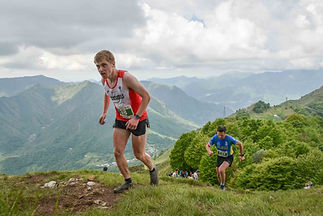
About Me
My name's Tomas and I'm an endurance sport coach with a passion for helping athletes achieve their goals in the most healthy and joyful manner. I hold a first class honours degree in sport science and coaching, and I've represented Wales at numerous international mountain running events. Alongside this, I have experience working in elite sport as a performance analyst, supporting performance programmes across the NCAA and professional football. This blend of academic knowledge, athletic experience and time spent in elite sporting environments has provided me with a well rounded understanding of human performance, from the science that underpins it to the factors that drive it.
Coaching Philosophy
Below are some of the key principles that underpin my coaching philosophy and play a vital role in ensuring that even the most ambitious of goals can be achieved while prioritising health and joy.
Prioritising health and joy - For improved endurance sport performance, training consistency is vital. Consistency is best achieved when the athlete is healthy enough to complete daily training and enjoys the training enough to not rely on extrinsic motivation. Sacrificing an athlete's health or happiness for improved performance is never a price worth paying.
Collaborative approach - I view the training process as an ongoing N=1 case study or a personalised puzzle, and working alongside the athlete (rather than just dictating) aids in solving the puzzle more efficiently. The athlete should feel part of the training process, not just a completer of the training prescribed to them. This should allow for a more intrinsically motivated climate.
Human first, athlete second - There is more to life than sport, and recognising this throughout the coaching process allows for improved endurance performance over the long-term. General life stress can alter immune function, increase the risk of injury or influence how we respond to the training. My care for the human, not just the athlete, allows for training to be adjusted to accommodate for non-sporting life, which makes training consistency much easier to achieve over months and years.
Process view of success - Developing a culture where success criteria is internal and controllable should allow for a more likely display of positive emotions (reduced anxiety and increased satisfaction with their sport) and productive behaviours. Defining success on personal improvement and effort rather than how one compares to others will allow for result-based success to take care of itself.
Qualifications
-
BSc First Class Honours in Sport Science and Coaching
-
England Athletics Elite Athlete to Coach Programme
-
Diploma in Data Analysis for Sport Science (Barcelona Innovation Hub)
Experience
-
International Mountain and Sky Runner
-
Welsh Fell Running U23 Champion 2023 & 2025
-
Multi-year experience working in elite sporting environments in the NCAA and professional sport